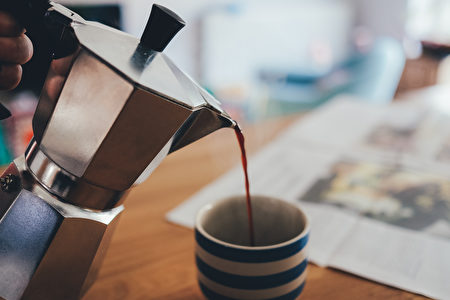Caffeine, diuretic? Does it cause dehydration?

The study found that caffeinated drinks retain water in the same way as water or sports drinks. (Maria/Unsplash)
Caffeine has long been said to be a diuretic. For some people, this is tantamount to advice: people at risk of dehydration, or in extremely hot weather, do not drink caffeinated drinks. This proposal may be well-intentioned, but it is wrong.
By definition, diuretics increase urination, so water or any beverage is a diuretic when consumed in large quantities. Importantly, excessive urination does not necessarily lead to dehydration.
Drinking water not only rehydrates the body (to prevent dehydration), but also promotes urination. Caffeine is a weak diuretic. If you don't take too much caffeine, the body can quickly gain tolerance and avoid chronic dehydration.
In fact, humans have known this for nearly a hundred years! A 1928 study showed that the intake of half a milligram of caffeine per kilogram of body weight (half a cup of coffee) led to a significant increase in urine output when the three participants did not eat caffeine for the first two months. But four or five days later, the human body gained tolerance.
More than a decade ago, this discovery was supported by contemporary research methods and analytical surveys. The study monitored 59 people for 11 days. In the first six days, all people consumed 3 milligrams of caffeine per kilogram of body weight (2 to 3 cups of coffee a day), and in the next 5 days, they were divided into three groups with zero, low (1 cup) and medium (2 cup) levels of caffeine, respectively.

Caffeine has little effect on hydration. (Annie Spratt/Unsplash)
The researchers monitored a variety of indicators of hydration, including urine volume and color, and found that none of them was affected by regular caffeine intake.
Recently, the "hydration academic" put forward the index of "Beverage Water and Index" (beverage hydration index) to describe the ability of different beverages to retain water in the human body; once again, the general intake of caffeine (such as coffee, tea or cola) is similar to the water retention capacity of water or other sports drinks.
One advantage of the index is that it acknowledges that all drinks rehydrate the body (some of which are more effective). If people are advised not to drink their favorite drinks (simply because they contain caffeine), people may not automatically change drinks, resulting in a reduction in total water intake.
There is solid evidence that lack of water affects health (especially for the weak), interferes with mood, brain and heart function, and leads to a poor prognosis of hospitalized elderly patients.
So while some caffeinated drinks (such as cola and energy drinks) have their own problems, such as high sugar content, from a fluid balance point of view, you don't have to worry about caffeine.
Ben Desbrow is an associate professor of sports nutrition and dietetics at Griffith University University in Brisbane, Australia. He has invented hydration beer. This article was originally published on the website The Conversation. The translation is slightly abridged.
Important Notice :
前街咖啡 FrontStreet Coffee has moved to new addredd:
FrontStreet Coffee Address: 315,Donghua East Road,GuangZhou
Tel:020 38364473
- Prev

Will drinking coffee during pregnancy cause arrhythmia? Doctors cracked caffeine...
Traditionally, there are many pregnancy taboos and myths, and the older generation of elders will earnestly warn their wives who are preparing for pregnancy or who are already pregnant and are having a baby to keep in mind that they want to increase the probability of giving birth to boys, eat more alkaline foods, and never drink tea and coffee during pregnancy, which can cause arrhythmia between pregnant women and fetuses, and must drink biochemical soup in order to expel lochia. The doctor cracked the common for you.
- Next

Toronto Starbucks clerk paints portraits of customers on paper cups
A small move by a Toronto Starbucks clerk was welcomed by customers. A Starbucks coffee shop in Toronto has attracted many customers because of a talented barista who can draw customer cartoons on paper cups in a short time. According to CBC News, the Starbucks store is located on Eglinton Avenue East and Warden Avenue, and the barista Totswitz
Related
- The ceremony is full! Starbucks starts to cut the ribbon at a complimentary coffee station?!
- A whole Michelin meal?! Lucky launches the new "Small Butter Apple Crispy Latte"
- Three tips for adjusting espresso on rainy days! Quickly find the right water temperature, powder, and grinding ratio for espresso!
- How much hot water does it take to brew hanging ear coffee? How does it taste best? Can hot water from the water dispenser be used to make ear drip coffee?
- What grade does Jamaica Blue Mountain No. 1 coffee belong to and how to drink it better? What is the highest grade of Blue Mountain coffee for coffee aristocrats?
- What are the flavor characteristics of the world-famous coffee Blue Mountain No. 1 Golden Mantelin? What are the characteristics of deep-roasted bitter coffee?
- Can I make coffee a second time in an Italian hand-brewed mocha pot? Why can't coffee be brewed several times like tea leaves?
- Hand-brewed coffee flows with a knife and a tornado. How to brew it? What is the proportion of grinding water and water temperature divided into?
- What is the difference between Indonesian Sumatra Mantinin coffee and gold Mantinin? How to distinguish between real and fake golden Mantelin coffee?
- What does bypass mean in coffee? Why can hand-brewed coffee and water make it better?

